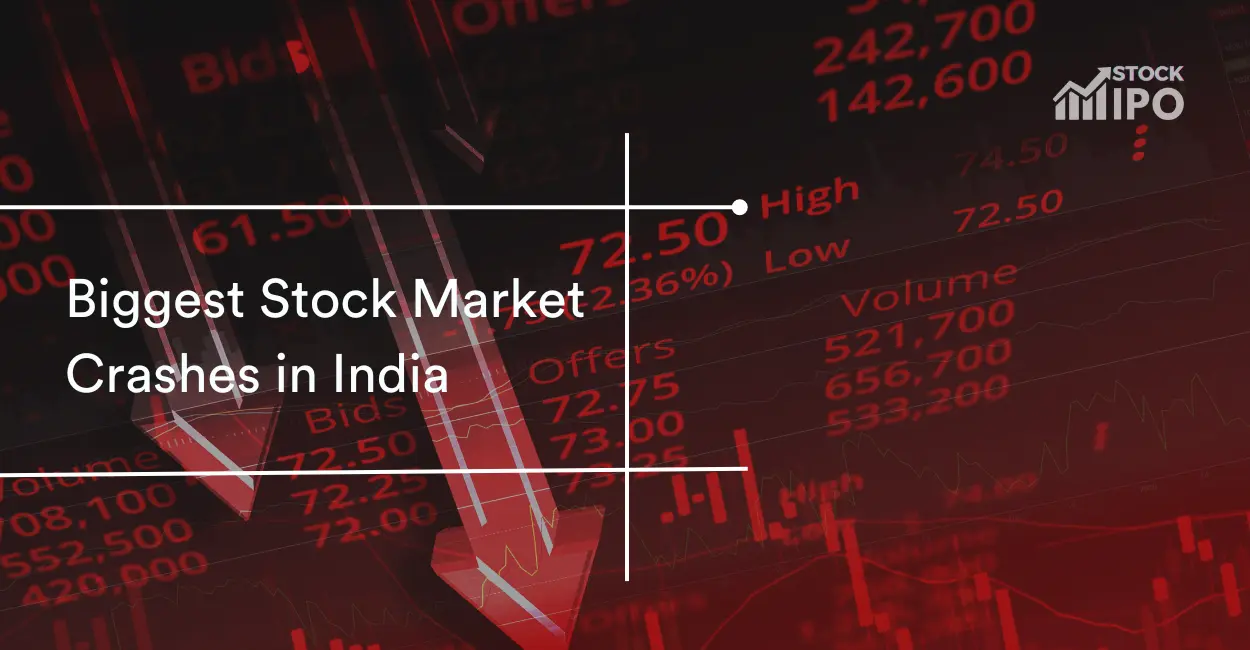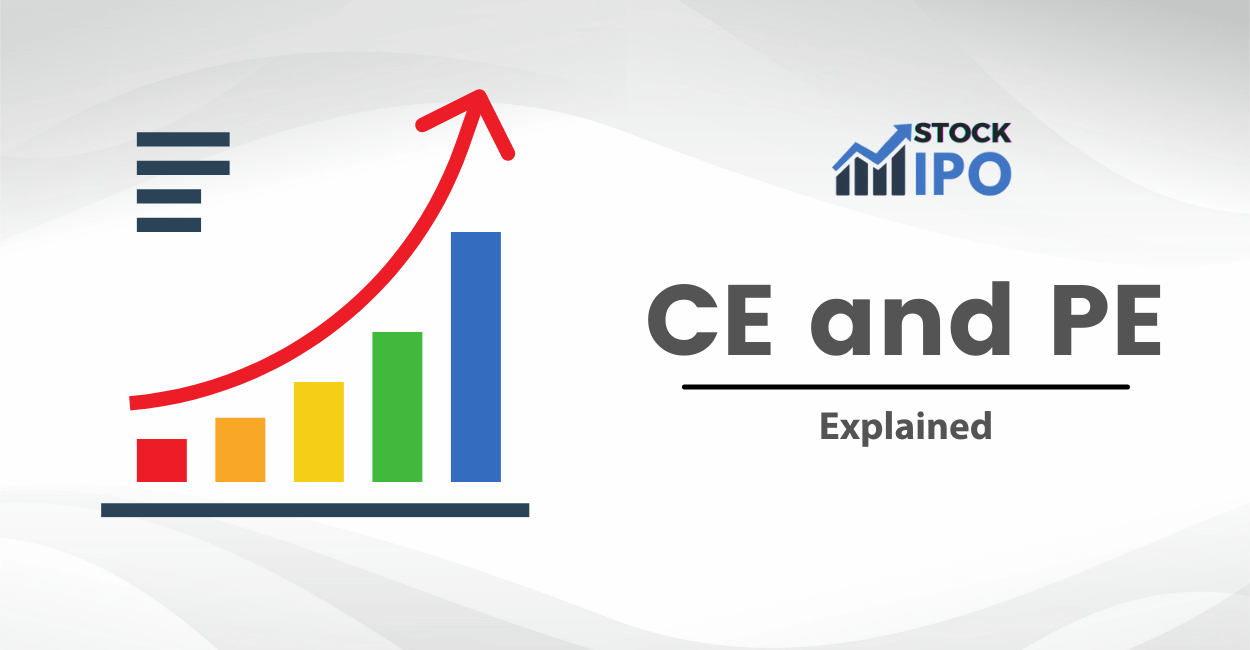Stock Market is volatile; this fact has never been hidden and does not need proof. There are days when the stock market performs really well, and some days are worse than others. These underperforming days when the market faces a severe drop in the index and loses points are known as Stock Market Crashes.
These crashes result in a loss of stock values, and hence the fall in the value of the investments made by the investors and traders in the market. What can start as a normal day in the market, can end in huge losses caused by just one piece of news. Such days are the days some investors fear and some wait for taking it as an opportunity to enter the market.
The article below will tell the readers about the biggest stock market crashes in India, and their reasons.
The following table gives an idea of the crashes the article talks about –
| Date | Cause | Lost |
|---|---|---|
| March 2020 | COVID-19 | 13.15% |
| April 1992 | Harshad Mehta Scam | 12.77% |
| March 2008 | US Financial Crisis | 10.95% |
| June 2015 | Yuan Devaluation | 5.94% |
| November 2016 | Demonetisation | 5.90% |
What were the reasons?
Let’s discuss this further, what were the reasons for these major stock market crashes in India in the past –
March 2020
COVID-19 was a huge setback for countries worldwide. Focusing specifically on India, the first case was detected in January 2020, and the lockdown came in March of the same year. March 2020 also saw the Yes Bank Crisis due to the NPAs and added to the already falling market.
All these factors forced the Foreign Institutional Investors to exit from the Indian market and look for markets of more stable economies for safety. The uncertainty of the duration of the lockdown, and the halt in economic activities in the country were the major reasons.
The market, however, started to recover in the following months. BSE which had fallen to 26,000 points in March 2020, gained its value back by November 2020 and has also reached new highs since then.
April 1992
Harshad Mehta, famously the Big Bull was very famous for his lavish lifestyle. He started to study the stock market and its concepts and soon identified the loopholes in the rules and system of banking. Harshad Mehta took advantage of these loopholes and fraudulently made the market jump to high points, making it a highly bullish market.
He took money from banks that had people’s trust and invested this amount into the market, by making promises of high returns. Since he was investing in the stocks on behalf of the banks, these banking caring for the trust of people, the demand for such stocks would rise and inflate the market to underserving points and such stocks to high prices.
By selling these high-valued shares then, he would give some profits to the bank and keep the rest.
BSE had fallen from around 4000 points to 2000 points in June 1992. After the scam was discovered, the Reserve Bank of India came up with major changes and reforms in the banking sector to avoid any such events.
March 2008
The 2008 crisis has been one of the most significant crashes not just in India but worldwide. The crisis not just resulted in a market crash, but major economies were on their edges too.
The crash is taught in B-Schools even today as a case study to analyse the causes and impacts it had on the world. The reason for this crash was the bubble created by the US Housing Market. Even though the event took place in the US, it affect the world all over.
Talking about the Indian Market, lost almost 50% of its value. Even though Indian banks were not directly impacted by all the events in the US, since there wasn’t much international exposure of these banks in those days, there was an indirect impact seen on the market. The fall of banks and companies does impact the exports of our companies, when such exports fall, the companies perform poorly resulting in a fall in their performance and hence their prices. Along with the stock market where almost 12 Billion USD fell out of the market, the Current Account Deficit of India was also severely affected.
June 2015
The Yuan Devaluation incident is another such crash that is on our list today. One of the worst markets falls in India and the entire world occurred between June 2015 and June 2016. The Yuan devaluation, the drop in oil prices, the bad GDP news out of China, and the Greek debt crisis all marked the start of the year-long selloff. What began in 2015 continued through 2016, when the Brexit crisis caused bond yields to sharply increase.
The Sensex fell 5.94% in August 2015, wiping away around INR 7 lakh crore from the Indian market. In addition, Sensex lost more than 26% between April 2015 and February 2016.
November 2016
The most memorable night of our lives possibly. What’s funny is we even remember the exact time. When Prime Minister apparently wanted to have a chat with the country at 8 PM on the night of 8th November 2016. With our dinner in front, we realised all our cash was basically useless then.
Keeping the horrors of the long queues aside for a moment, the banning of the 500 and 1000 notes showed its impact the very next day in the market. The investors panicked and began to sell heavily. BSE fell by more than 1600 points and 6.12%. NSE too fell by 590 points.
The market’s problems were made worse by indications from the US that Hillary Clinton, who was preferred by the market, was rapidly losing ground to Donald Trump. Investor sentiment suffered a serious blow as a result of these two events.
Adani Ports, M&M, Bharti Airtel, ONGC, Bajaj Auto, ICICI Bank, Hero MotoCorp, Cipla, Sun Pharma, and HDFC Ltd. were among the conglomerates whose shares decreased by more than 5.50 points each. Most key players in the real estate industry, including DLF, Godrej Properties, Sobha Developers, Unitech, Indiabulls Real Estate, and HDIL, had their shares fall by over 15%.
Final Thoughts
The reasons for which stock markets can fall or have fallen in the past are vast. As mentioned earlier, the stock market is volatile and such events as explained above can occur any day without warnings. Such events make a person sceptical as to if he should or should not invest in the market and whether is it even safe to do so. Such events, however, are not an everyday occurrence and can be dealt with if one has the experience and knowledge of the same. Being an informed and aware investor is the most essential factor one should focus on.
And as we know, history is the best teacher, learning from such events and moving on is the best decision.







